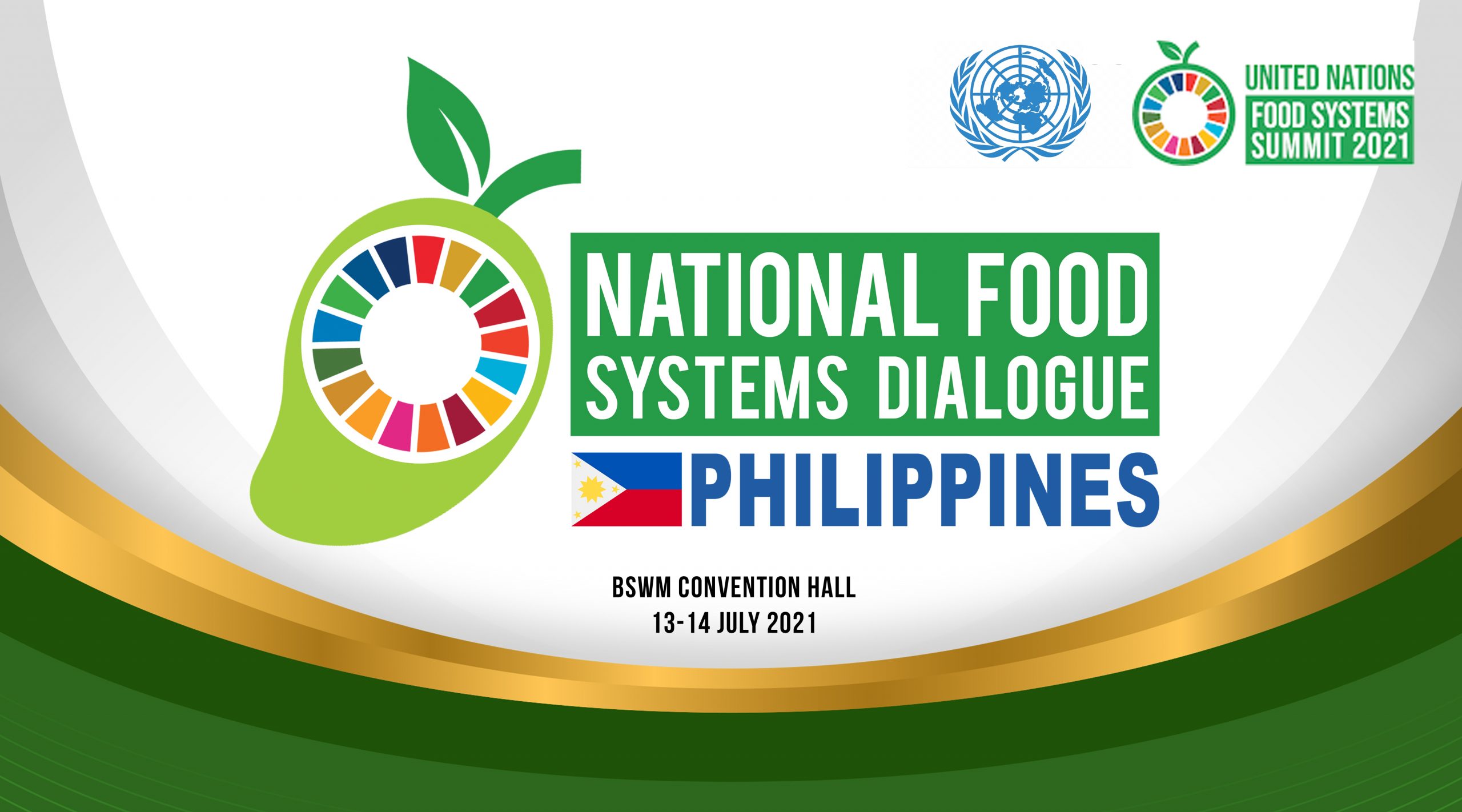
Inclusivity, resiliency, and sustainability of the Philippine food system will be the main focus when the Department of Agriculture (DA) holds a virtual National Food Systems Dialogue on 13-14 July in relation to the United Nations Food Systems Summit (UNFSS), which will be held in New York, USA on September this year.
The health and economic crises brought about by COVID-19 have caused disruptions in the global food systems, including the Philippines. “This pandemic has shown the fragility and inequalities of our food systems and underscored the urgency to make more sustainable, inclusive, and resilient. We must act collectively in order to face these challenges head on,” said Agriculture Secretary William Dar.
The DA chief pointed out that: “To realize our goals, we must apply a whole of nation approach wherein a diversity of stakeholders will be involved including voices that are seldom heard and provide an important opportunity for participants to debate, collaborate and take action towards a better future.”
Dar has been designated as the country’s National Convenor for the UNFSS.
The objective of the national dialogue is to shape national pathways to sustainable food systems, build on efforts that are already underway, as well as express intentions to support these pathways by a broad range of stakeholders so that the 17 sustainable development goals can be achieved by 2030.
For the Philippines, emphasis will be on sustainable market-oriented development in agriculture, higher levels of farm productivity and incomes, and food security for all—consistent with the DA’s Food Security Framework and OneDA Agenda.
The National Dialogue will address the five Action Tracks that will be tackled in the September 2021 UNFSS: 1) ensure access to safe and nutritious food for all; 2) shift to sustainable consumption patterns; 3) boost nature-positive production; 4) advance equitable livelihoods; and 5) build resilience to vulnerabilities, shocks and stress.
These five Action Tracks offer stakeholders from a wide range of backgrounds a space to share and learn, with a view to fostering new actions and partnerships and amplifying existing initiatives to address global poverty and hunger, as well as protection of natural resources.
Each Action Track is designed to address possible trade-offs with other tracks, and to identify solutions that can deliver wide-reaching benefits.
In 2019 the United Nations Secretary-General, António Guterres called for a Food Systems Summit this year, to encourage collective action of all citizens to radically change the way the world produce, process, and consume food.
This call is part of the Decade of Action to achieve the Sustainable Development Goals (SDGs) by 2030. These 17 SDGs include, among others, no poverty, zero hunger, and good health and well-being by 2030.
The UN forecast that from the current 110 million, the population of the Philippines will reach 126 million by 2030 and about 142 million by 2040, posing a challenge to both government and private sectors to design a workable pathway that will ensure food security for its people while safeguarding the environment for future generations.
According to the UN, the COVID-19 pandemic has exposed deficiencies in the global food systems, which encompasses every person and every process involved in growing, raising or making food, and getting it into your stomach – from farmers to fruit pickers to supermarket cashiers, or from flour mills to refrigerated trucks to neighborhood composting facilities.
The UNFSS is designed to address the gaps that will ensure a shock-proof global food system. ###














